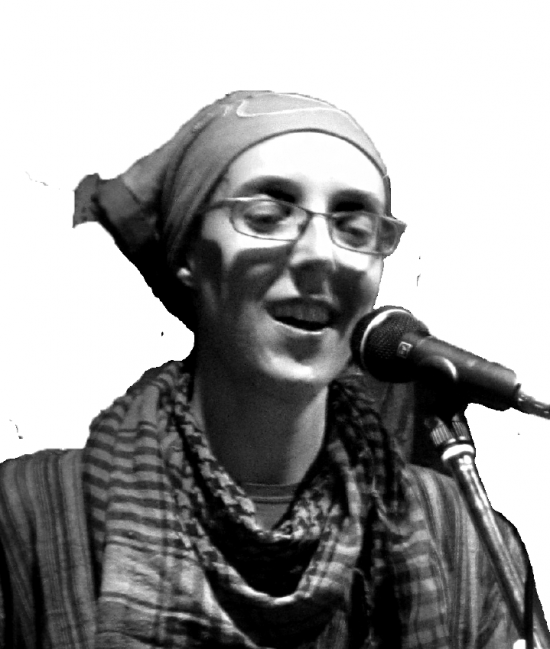Sometimes the song is silence.
In the context of radical singing, I’ve only felt this once before, during the wave of Black Lives Matter protests that erupted in 2020. At that time I felt that sharing my voice in song wasn’t the right element to bring to some of these protests and gatherings; that as a white person my job in that moment was to shut up and listen, and then to amplify the voices of black people at home and internationally, alongside participating in conversations within my own communities about the issues and how best we can all work to help to dismantle the global system of white supremacy.
Since then, we have sung many times in different contexts in support of Black Lives Matter and anti-racist gatherings. Currently, we stand in support of the family of Sheku Bayoh, a black man who died after being restrained by police here in Scotland in 2015, as they attend the public inquiry into his death.
This month, after the Hamas attacks of 7 October and the following bombardment of Gaza by Israel, I found myself temporarily silent.
On one level, all I had was to stand in silent witness to what was happening. I stood with the Edinburgh group of Women in Black, part of a global movement of women for peace that was begun by Israeli women in Jerusalem. I have stood with these women and seen some of the aggression that they face simply by standing in silent witness to another possibility: Peace.
At the first big demonstration in Edinburgh, after a week of unthinkably heavy bombing of the civilian population of the Gaza Strip, I didn’t actually feel confident that we could capture enough of people’s feelings to sing.
I knew we could do this in a closed room – share the grief and the pain and the rage together. But at a large open air demonstration with so many people feeling so many complex things, I just thought whatever we sang would be right for some people and wrong for others, and I didn’t want to put that upon anyone.
I went to the demonstration, to call for a ceasefire and bear witness to the pain of my Palestinian friends, and also to offer my heartfelt condolences to a small gathering of people who were holding an Israeli flag near to the demonstration. I didn’t know who around me had lost loved ones in the past few days, and it felt important to try to acknowledge all the grief I came into contact with on that day.
This moment of pause and reflection was important in informing me how to respond appropriately to the injustices that surround us. I have been singing in solidarity with Palestinian people for many years. I have so many songs and so many stories that I am used to sharing – calling always for justice and for an end to the occupation, and using my songs to help rehumanise Palestinian people to others who may not have met them before, who may have just read news articles painting stereotypes of victims and terrorists.
At our Protest in Harmony workshop that first weekend, we stood together and sang one of the funeral songs sung in South Africa, also sung around the world in solidarity and against that apartheid regime.
Senzeni Na? (What have we done?) is a song threaded with such rich harmony that we feel both comforted and more able to cry in the same moment. We feel connected as a community of people who are feeling the pain of this moment, of the connection of all of the losses of human lives, of humanity. And we also feel connected with global struggles towards justice.
We remember that it felt as if the apartheid regime of South Africa would never end, it felt as if the killing would never end, but it did. And so when it feels so deeply painful and hopeless as it does now, we are reminded that justice can prevail.
Like so many others, I have struggled to sleep over the past few weeks. And, one night, I could only get to sleep by playing a video being live-streamed from the Jewish-led protesters surrounding the White House, calling for a ceasefire. They were singing a beautiful, soothing, lullaby-like chant: ‘Not in my name’ and ‘Ceasefire now’.
The song I ended up writing for us to sing at the vigils we’ve been holding in Edinburgh was inspired by this chant, which serves to soothe our hearts while also being clear about what we are calling for. It also draws on the wisdom of James Baldwin, who in 1980 wrote: ‘The children are always ours, every single one of them, all over the globe; and I am beginning to suspect that whoever is incapable of recognizing this may be incapable of morality.’
The children are always ours, every single one. We can hold this close to our hearts always, and when we know that the children are always ours, then we know that all of the adults are too. All of the people are ours. They are us, and we are them.


